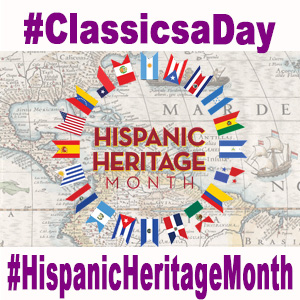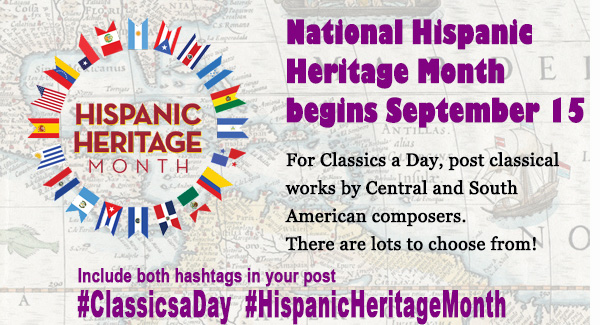
#ClassicsaDay #HispanicHeritage Week 3
By Ralph Graves
September 15 kicks off Hispanic Heritage Month. The Classics a Day team has also made it their theme for September. The challenge is to post video performances of Hispanic composers. The posts can be on any social media platform you choose.
We recently completed a month of posts featuring Mexican composers. This month, I’m sharing music by Hispanic composers further south. Here are my posts for the third week of #HispanicHeritage.
09/18/23 André da Silva Gomes (1752–1844): Missa em Sol maior
Gomes is one of the earliest native Brazilian classical composers. Most of his music was written for the church. He wrote over 130 works, although many were lost over time.
09/19/23 Juan Manuel Olivares (1760-1797): Stabat Mater
Oliveres was one of the first native Venezuelan composers. He’s credited with composing the first chamber music in the country. Most of his major works, like the Stabat Mater, were written for the church.
09/20/23 Enrique Iturriaga (1918-2019): Sinfonia Junin y Ayachucho: 1824
Peruvian composer had a career in popular music before turning to classical composition. He studied with Arthur Honegger. Iturriaga was director of the National School of Music and later the National Conservatory of Music in Peru.
09/21/23 Jacqueline Nova (1935-1975): Asimetrias for flute and percussion
Nova pioneered electroacoustic music in Columbia. She hosted a contemporary music radio program and established an ensemble to perform works by living composers.
09/24/23 Luis Humberto Salgado (1903-1977): Sinfonia No. 1 Andina
Salgad strove to incorporate Ecuadorian music into his classical works. He even developed a four-movement symphonic form based on Ecuadoran folk dances. This is the form he used for his first symphony.


